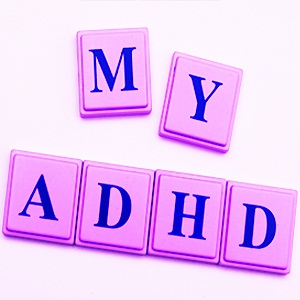
Conventional treatment of ADHD and ADD symptoms normally takes the route of psycho-stimulant medications (methylphenidate) that help control the symptoms such as hyperactivity, short attention span and impulsive behaviour. Examples are Ritalin and Concerta.
While they do help with these symptoms, they have not shown to assist with helping the child (or adult) adjust better in social environments, and any benefits stop when the medication is no longer taken.
There are also concerns about the potential for abuse and addiction, especially in those with a history of these disorders, though research has shown that this may have more to do with underlying ADHD and poor control symptoms, rather than the medication itself.
There are children who experience no problems with the medication, others who have mild and transient effects and those who cannot tolerate the effects at all.
Side effects of stimulant medications
While most immediate side effects are mild and diminish over time – these include headaches and abdominal pain, some children do experience more severe reactions that tend to persist.
Loss of appetite
One of the most worrisome to parents is a reduction in appetite. Health24's ADHD expert Delia Strondl recommends that the medication be given to children before breakfast to ensure a hearty meal can be eaten before the loss of appetite sets in. They should also take a supplement such as Ensure to counteract weight loss.
Negative moods
Change of moods (for the worse) is another common side effect. If that is the case, it is recommended that the doctor adjust the child's dose or medication.
Heart palpitations
Stimulant medications increase the heart rate and blood pressure.
The FDA (Federal Drug Administration in the US) collected data between 1999 and 2004 and found that 19 children taking prescription stimulants for ADHD had died suddenly while another 26 had strokes, heart attacks and or heart palpitations.
Experts recommend that all children have an electrocardiogram to check for heart problems before being prescribed ADHD stimulant medication and they prescribing doctors should do a careful family history before prescribing.
Tics and blinking
Some children develop an obvious habit of blinking their eyes, also referred to as tics, which cease when the child is taken off medication.
In many – up to 50% of cases it could be due to an underlying tic disorder that is brought out by the medication. A neurologist will be able to advise.
Changes in the brain
Researchers at Weill Cornell Medical College in New York City found changes in the brain areas of young rats who were given Ritalin. The changes occured in the brain areas that control higher executive functioning, addiction and appetite, social relationships and stress.
This underlies the importance of being cautious about prescribing these medicines in people with healthy brains.
Read: More ADHD kids given drugs than therapy
What's the alternative?
While stimulant medication is useful in treating the worst cases of ADHD, the consensus among healthcare professionals is that it only be given to children with serious behaviour problems, that they receive the lowest dose possible and that they are taken off the medication as soon as possible.
Child Psychiatrist Dr Lesley Carew says caution must be taken in children with pre-existing seizures, tics, depression, psychosis or hypertension.
There are a number of natural supplements on the market which claim to assist with concentration. Because their efficacy differs from person to person, it's best to discuss your option with a pharmacist or doctor.
Dr Shabeer Jeeva, a psychiatrist at the ADHD clinic in South Africa, is personally affected with ADHD, as are his two children. He says what we need is for holistic action that includes effective parenting, diet, exercise, sleep patterns and quality, as well as natural supplements.
On his website he quotes that studies have consistently shown that ADHD patients lack certain nutrients necessary for proper brain functioning. He mentions a 1996 study published in the Journal of Child Psychology and Psychiatry, that revealed a significant correlation between essential fatty acids and ADHD and that researchers found decreased levels of amino acids, and zinc in ADHD children.
Alexandra J Richardson published a study in the International Review of Psychiatry, (April 2006) on the possible role of omega-3 in ADHD and related childhood developmental disorders.
The study showed that both theory and experimental evidence support a role for omega-3 in ADHD, dyslexia, developmental coordination disorder (DCD) and autism.
Dietary supplementation with fish oils (providing EPA and DHA) appeared to alleviate ADHD-related symptoms in at least some children, and one study of DCD children also found benefits for academic achievement.
Read:
ADHD: More support for omega-3
Ask the ADHD Expert your questions
ADHD medication FAQ
The latest on ADHD and Ritalin
ADHD medications may cause teenage weight gain
Image: ADHD pill box from Shutterstock




 Publications
Publications
 Partners
Partners











